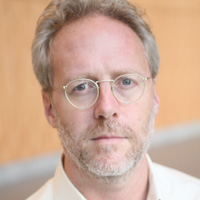Q. What is the biggest challenge of working overseas?
A: A lot of it is just the obvious stuff—infrastructure, logistics, and resources. Everything from electricity to finding trained people to work for you can be a challenge. For example, my clinic in Malawi is on the site of a hospital where there is one clinical officer, the equivalent of a physician’s assistant, who treats 300 people a day, easily. We really have to struggle with how to do research in a setting like that without drawing people away from those important jobs. You do that by finding ways to give back to the community where you work.
Q. What is the biggest reward?
A: Ultimately, we hope that the results we produce are going to save lives. But personally, one of my greatest rewards comes—even more than from publications in major journals—from seeing my international trainees go out and do great things. Some start life in rural villages, but they manage to get schooling and eventually go on to get Ph.D. training.
One example is Abdoulaye Djimdé, who grew up in the remote Dogon Country of Mali, went to pharmacy school in the capital city of Bamako, completed his Ph.D. in my lab in Baltimore, and then returned to Mali to do research. He’s now an HHMI international research scholar with a big, well-funded lab.
Q. What are the major opportunities in international research?
A: There is a lot of excitement right now about a renewed call for malaria eradication. We are used to treating and preventing malaria as a disease, but I think we should go back to the time when we thought about it more as an infection that we could eliminate. The idea is to drain the malaria lake—by driving down transmission across whole regions—and then dry up the remaining puddles, one at a time. To do that, we need to understand basic malaria biology so that we can block transmission as well as treat the disease.
The critical thing is to ask the right questions. It’s hard to know what the important questions are if you spend all of your time in the lab. I would like to see more training and support for endemic country scientists. What I would like to see is more people like Djimdé, who do high-quality science in their home country.


